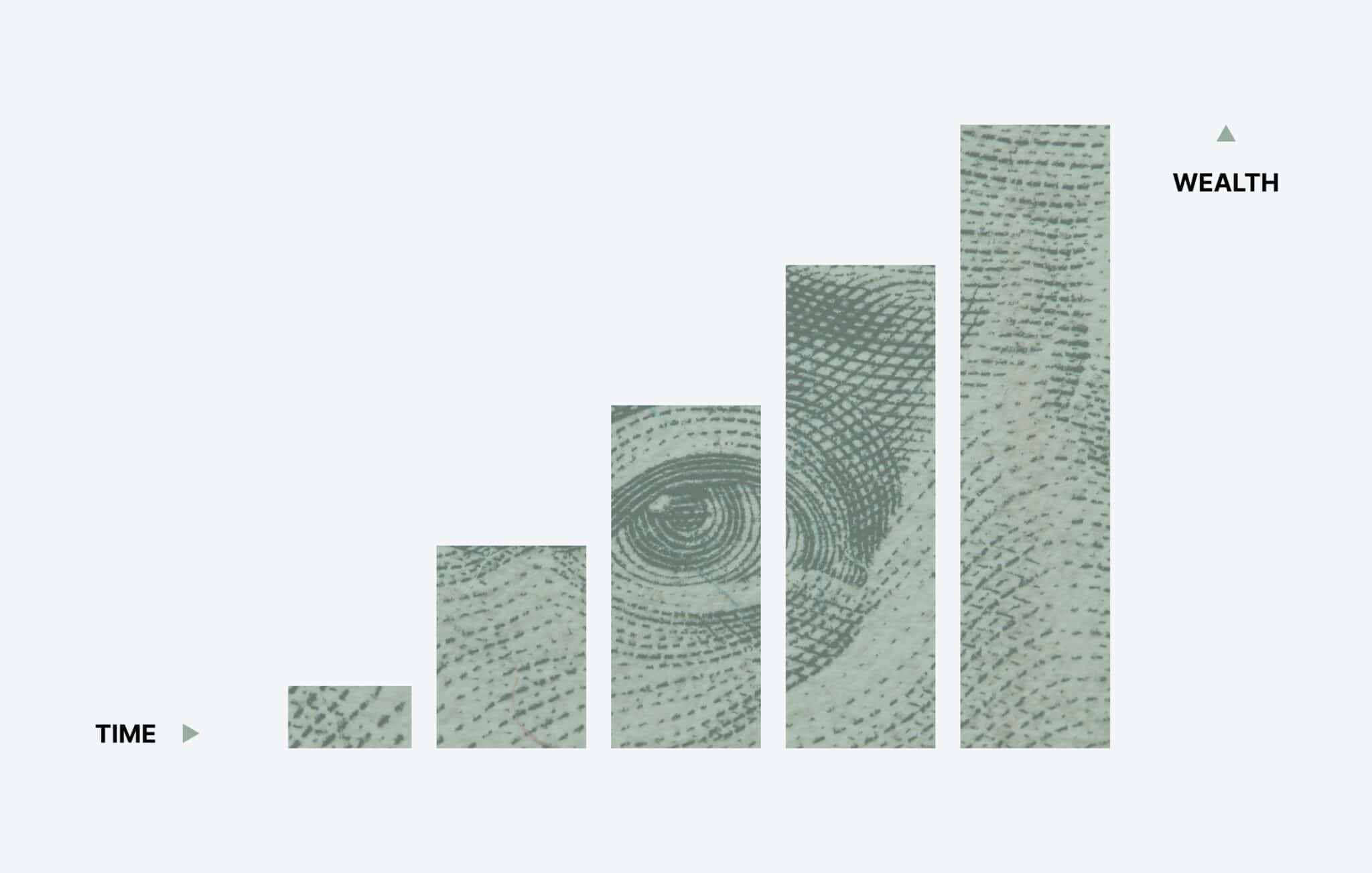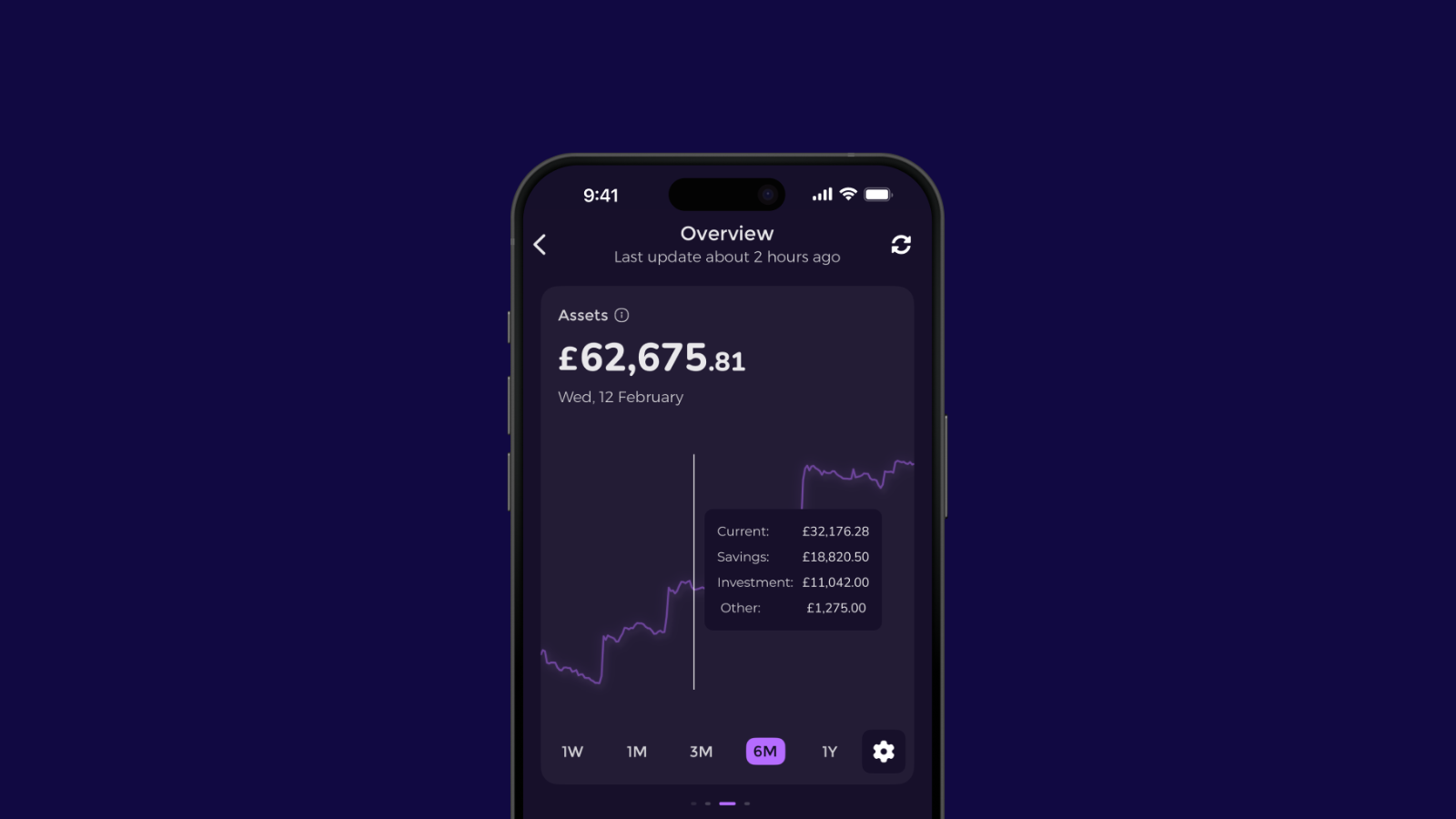FEATURED ARTICLE
What Is Compound Interest?

Rebekah May
July 20, 2020 •3 min read
TABLE OF CONTENTS
Compound Interest: Savings
Why is it a good thing for savers?
Compound Interest: Debt
How to make the most of compound interest
Calculating Compound Interest
Summary
Compound interest is a financial term that you may have heard being thrown around. But, what does it actually mean, and why is it so important?
Whether you have savings, investments, or debts, understanding compound interest is vital because it could massively impact your finances. Either positively, or negatively.
Compound Interest: Savings
When you save money, you’re likely to earn a small amount of interest on that money.
With compound interest, you then earn money from the interest you’ve made. Therefore, every year that your money is in a savings account, you will be earning interest on a previous year's interest.
Not only does compound interest help your savings grow, but it also speeds up the rate to which your savings increase.
It might help to explain this by doing some basic maths.
If you deposited £1000 with a 5% rate, at the end of year one you would have £1050. That’s £50 you’ve earned from interest in year one.
The following year you would then start with £1050. You would again earn a 5% interest rate, meaning in the second year you would make £53 in interest.
The following year you’d start with £1,103 and make £55 in interest. See where we’re going here?
If you kept that £1,000 in an account with 5% interest for 10 years, your money would eventually be worth £1,629.

Why is it a good thing for savers?
The best thing about compound interest for savers is that even if you do not add anything to your savings, they will continue to grow.
Using the example above you can see how much money was earned over 10 years. Now imagine what this number would look like if you kept that same money in an account for 40/50 years!
Compound Interest: Debt
The unfortunate thing about compound interest is that the same theory applies to debt. That is why it is so important to fully understand the interest metrics you pay on credit cards.
The pros of compound interest no longer apply to debt. You will be paying interest on interest earned in previous years. Your debt could quickly snowball out of control, making it harder, and longer, to pay off any remaining balance.
How to make the most of compound interest
As with all savings advice, the earlier you start the better. The longer you are able to leave your money untouched, the more benefits you will see. That’s because your money will grow exponentially each year it’s saved.
You can also check the interest rates when you’re comparing which bank to save with. Go for the bank with the highest interest rate. If a bank offers compounding daily, then this will mean your savings grow even faster as you’ll be earning from an increased daily total. This is often referred to as compounding frequency.
Rates of return do vary massively, and you may be aware that current interest rates for savings accounts are very low. Typically, investment returns are much higher, so you could consider whether this was a better option for your money.
If you’re in debt, always pay off as quickly as you possibly can. Only paying off the minimum payments will mean you’ll spend more time repaying the interest charges, rather than the actual debt itself.
Calculating Compound Interest
If you’re looking to calculate how much you could earn from compound interest, there is a complicated formula you can use. However, there are tonnes of online calculators that do the hard work for you. Such as this one.
Start by choosing your currency. Then add your initial balance, interest rate, calculation period, and your compound frequency. Press calculate and you’ll be given a small summary of the interest you’ve earned.
Summary
With Emma Pots, you can start savings and earning interest to help you build compound interest!
We hope that has helped clear up a few things about compound interest and the powerful effect it can have on your money. If you like this post, let us know on Twitter or Facebook!
Interested in more personal finance calculations, see our post about calculating your net worth here.
You may also like
Check out these related blog posts for more tips
© 2025 Emma Technologies Ltd. All Rights Reserved.
Emma is registered and incorporated in England and Wales.
Emma Technologies Ltd is an appointed representative of RiskSave Technologies Ltd, which is authorised and regulated by the Financial Conduct Authority (FRN 775330).
Payment services (Non MIFID or Deposit related products) for Emma Technologies Ltd are provided by The Currency Cloud Limited. Registered in England No. 06323311. Registered Office: Stewardship Building 1st Floor, 12 Steward Street London E1 6FQ. The Currency Cloud Limited is authorised by the Financial Conduct Authority under the Electronic Money Regulations 2011 for the issuing of electronic money (FRN: 900199). For more detail on how your money is protected please see here. You can also find Currency Cloud's Terms of Use here.
Emma Technologies is an Introducer Appointed Representative of Quint Group Limited and not a lender. Quint Group Limited is authorised and regulated by the Financial Conduct Authority (Firm Reference Number 669450). Monevo Limited is an Appointed Representative of TransUnion International UK Limited. TransUnion is authorised and regulated by the Financial Conduct Authority (Firm Reference Number 737740). Emma Technologies introduces customers first to Quint Group Limited, as a licensed credit broker, who then refers on to Monevo Limited.
Emma is registered with the Financial Conduct Authority under the Payment Services Regulations 2017 for the provision of payment services.
Financial Conduct Authority Reg Nr: 794952.
Company Registration Number: 10578464.
Data Protection Registration Number: ZA241546.
All testimonials, reviews, opinions or case studies presented on our website may not be indicative of all customers. Results may vary and customers agree to proceed at their own risk.
Resources: Cancel subscriptions, Cashback offers, Who charged me, Rent Reporting, Budgeting, Investment universe, Emma vs Moneyhub.
Featured cashback offers: Samsung, SimplyCook, NordVPN, Audible, M&S Homeware.









